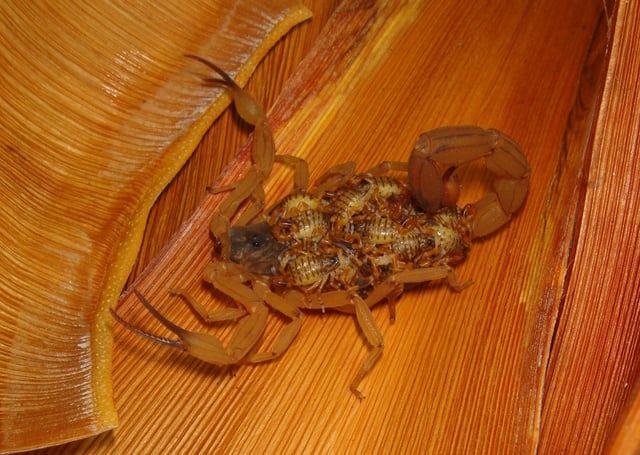Overview
- The Brazilian yellow scorpion, Tityus serrulatus, is rapidly spreading through urban and rural areas, driven by climate change and urbanization.
- This species reproduces through parthenogenesis, enabling a single scorpion to establish entire colonies, complicating containment efforts.
- Brazil’s public health system (SUS) provides free antivenom, but outdated production methods and rising sting cases highlight the need for modernization.
- Researchers are advocating for simple preventive measures, such as debris removal, sealing cracks, and community education, to reduce scorpion-human contact.
- Scientists are exploring venom molecules for therapeutic applications, including treatments for autoimmune diseases and chronic pain, while emphasizing the ecological importance of scorpions.
